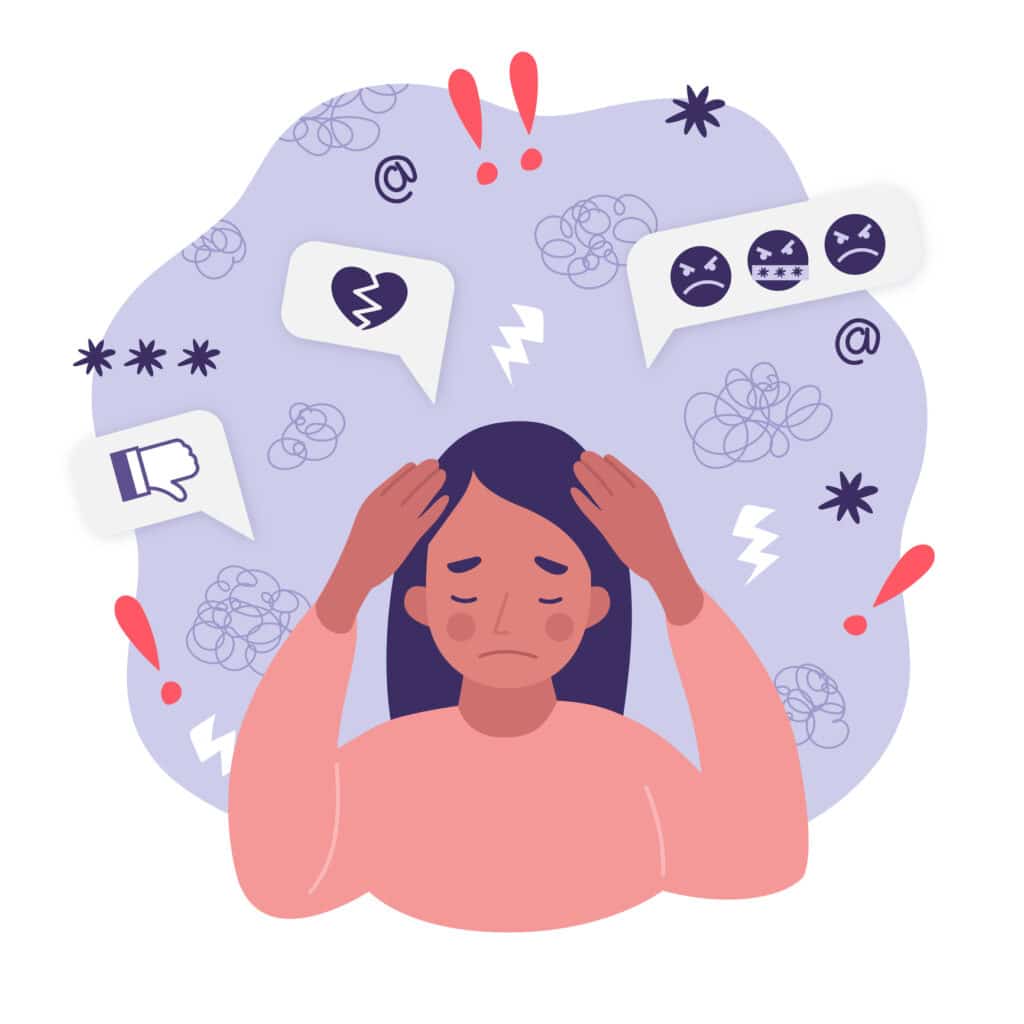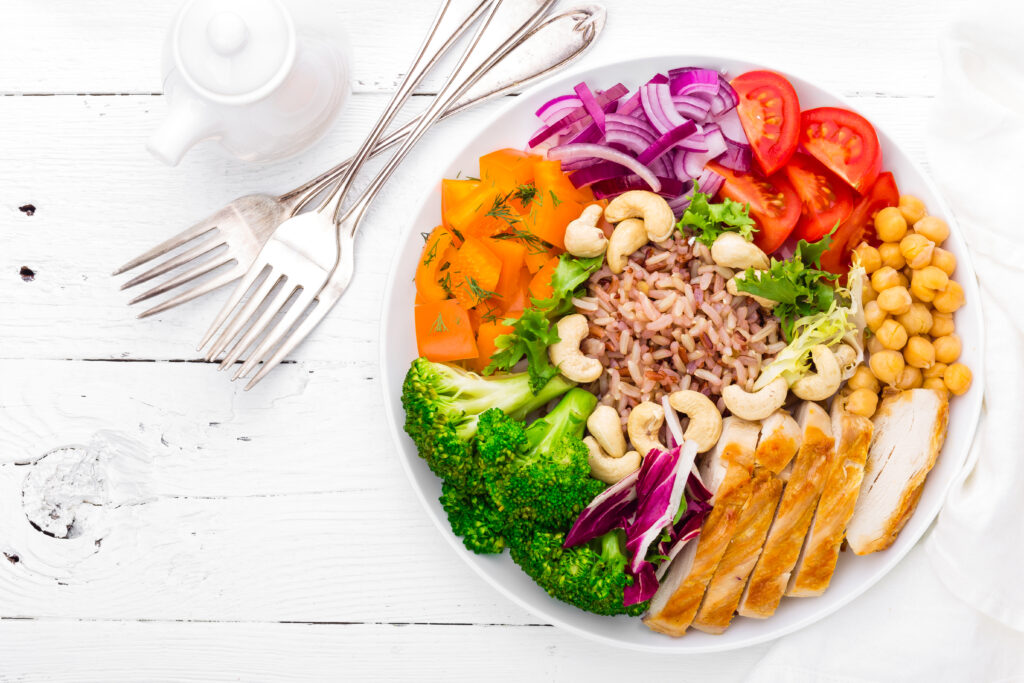Most of us are looking for an edge to increase work efficiency and productivity at work.
And it’s interesting because many of those same practices coincide perfectly with how to live a healthy lifestyle.
I have spent a lot of time strategizing about how I can increase work efficiency and productivity for myself.
There are tons of productivity tools out there but that’s not what I want to focus on here today. Most of us have the basic tools needed for that. And no tool in the world is going to help you if you don’t have your priorities set and your mind is all over the place.

I like to put things in an easy-to-remember format so I have come up with the “3 Ms” of productivity.
These also happen to apply very nicely to all of your health practices as well.
And frankly, these practices are not really optional if you want to achieve excellence.
If you truly want to be at your absolute best in your work and your personal life, you must nourish yourself in a way that facilitates optimal physical and mental functioning.
The 3 Ms of Productivity are:
- Macros
- Meditation
- Mindfulness
I’ll give a brief overview of these here but if you are interested in getting coached through applying these to your life to increase work efficiency and productivity at work, book a call with me here.
Macros
In order to be at your best and to optimize your efficiency and productivity with your work, you MUST nourish your mind properly.
“Macros” is short for macronutrients.
The 3 basic macronutrients are protein, fat, and carbohydrates. I always add water to that list.
This is really about thinking about your body and your brain and how you can fuel yourself properly.
If you don’t get enough water, protein, fat, or fiber you are going to feel the adverse effects physically and mentally.

This is a quick and powerful feedback loop that you can easily pay attention to in order to determine if you are getting enough of these macros.
Make sure you focus mostly on eating whole foods and not processed foods.
And pay attention to what’s on your plate.
If you eat a meal that is mostly empty carbs you may feel tired, brain fog, dizzy, or unmotivated.
If you eat too little carbs (that’s a real thing now) you may feel lethargic, hungry, or distracted by cravings.
Pay attention to what’s on your plate and then pay attention to how you feel.
Only you know what works best for your body.
If you need more guidance and want personal coaching on how to improve what is on your plate, book a call with me here.
Meditation
I’ve come to the place in my life where I know that meditation is not optional if I want to be super healthy and happy.
It is often last on the list for people when they are attempting to improve their health or to be more productive or efficient with their work.
But it should be the FIRST!
I recommend starting off with guided meditations.
And I also suggest starting off with 5-minute mediations that you do 2-3 times a day.
This way, you can just relax, close your eyes, follow the instructions, and be done quickly.
Once you do that daily or routinely for a few weeks, if you want to increase the time of the meditation you can.
Don’t start off thinking you HAVE to do 20 minutes of meditation.
That is where most people mess up when attempting to build new habits.

Start with something so easy, you can’t come up with excuses not to do it.
Everyone has 5 minutes to set aside 2-3 times a day.
And if you don’t, I can guess that you are not very productive or efficient at the moment.
Your body and brain (the machine) absolutely need to be taken care of in order for it to operate efficiently.
When you are relaxed and calm, your brain works better; you are more clear-headed, focused, and strategic and you definitely make better decisions.
Meditation is the answer to so many of your problems. I promise!
Now, you just have to get started with a small, easy practice.
5 minutes!!
Promise me you’ll find something you enjoy that is only 5 minutes!
Mindfulness
Meditation is a great way to improve your mindfulness.
So once you are fueling your body better and you are meditating a little every day, start focusing on mindfulness.
Mindfulness can mean many different things and I recommend finding what resonates with you.
The basic idea is that you are mindful of how you feel and what’s going on internally and externally for you.
I believe the best place to start is to be mindful of the signals coming from your body.
Our bodies do not lie.
We can choose to ignore the racing heart, the pit in the stomach, the clenched jaw, the tired legs, the achy neck, the headache, the bellyache, and so on.
Or we can turn toward these signs and be curious.
Why do I clench my jaw a lot?
Hmmmmmmmm….I can learn a wealth of information about myself from pondering this (and I have).
What is your body teaching you?

That is a great place to start.
Another place to start is to look at your life.
Your life is a manifestation of your inner thoughts and beliefs.
If you are healthy and happy that probably means you have some pretty positive beliefs about that.
If you are constantly having drama, difficulties, or stress in your life, it is certainly worth it to ponder why.
Do you have some conscious or unconscious beliefs about these things?
Perhaps you believe you have to “work hard” in order to be valued or to achieve success.
Perhaps you believe that you have to be a martyr to deserve appreciation.
Maybe you believe that you have to illustrate how knowledgeable you are in order to get respect.
This is all for you to explore.
Some great tools for mindfulness are as follows:
- Paying attention to your body and its signals
- Look at your life. What can you learn from it?
- Pay attention to your breath
- Make a list of your top priorities
- Practice good “energy management”
- Be fastidious with your calendar and time management
- Look around and feel appreciation for yourself and anything you can find to appreciate
- Practice journaling
- Practice honest wondering and curiosity
- Chatting with a supportive loved one
- Being “present”
- Take a pause, close your eyes, and check in with yourself
- Noticing patterns
- Being curious about anything you complain about more than 3 times
- Practice breathwork
Mindfulness can take on many forms and it really is a lifelong endeavor to incorporate more and more mindfulness into your daily life.
This list may have something you would like to start right away.
Or maybe it will spark some ideas.
No matter what, just setting the intention to be more mindful can make a difference.
These three tools, the 3 Ms, may seem simple but truly practicing them can change your life.
When you are committed to increasing your work efficiency and productivity at work, these are all areas that you simply must pay attention to.
If you would like to get started on any of these practices, I recommend you check out our self-guided program, the “Level Up” Program by clicking the link below.
